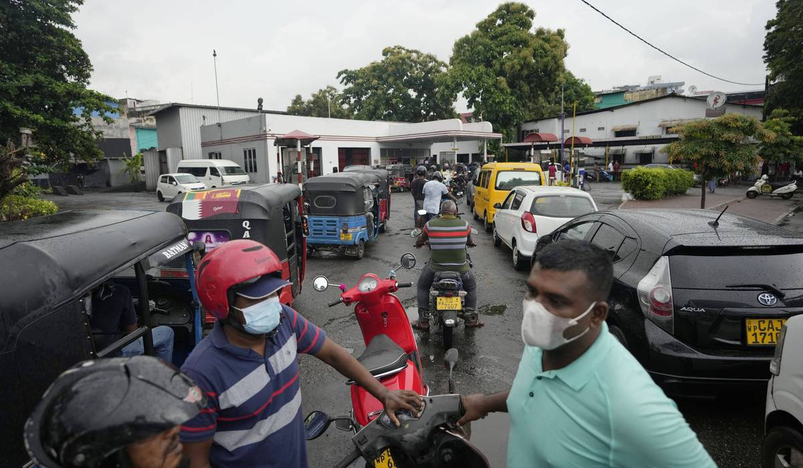
Sri Lanka
Sri Lanka will stop printing money completely to control a rapid increase in the prices of commodities, its prime minister said on Tuesday, with inflation expected to reach 60 percent this year.
The cash-strapped country of 22 million people is battling its worst economic crisis in decades and has been unable to pay for essential imports for months because of a severe dollar crunch caused by economic mismanagement and the aftermath of the COVID-19 pandemic on its tourism-dependent economy.
Extreme shortages of petrol, food and medicines have led to the closure of many services, and triggered mass protests that have been ongoing since March. The island nation has been forced to shut schools and stop providing fuel to all but essential services.
Consumer prices rose 54.6 percent in June from a year earlier, with transport surging 128 percent from the previous month and food 80 percent.
“Our plan is to control inflation. By the end of this year, inflation will rise to 60 percent,” Prime Minister Ranil Wickremesinghe told parliamentarians.
“In 2023, we will have to print money with restrictions on several occasions. But by the end of 2024, it is our intention to stop printing money completely.”
Wickremesinghe announced the planned measures after last week’s complicated bailout talks with the International Monetary Fund.
The premier, who took office in May and is also the finance minister, said the plan was aimed at reducing the inflation rate to reach between 4 and 6 percent by 2025.
Sri Lanka is facing negotiations with the IMF as “a bankrupt country,” Wickremesinghe said, as he outlined a roadmap to get out of the crisis. The government is planning to submit its debt-restructuring plan for the IMF’s approval by the end of August.
Stopping the printing of money is in line with the fund’s expectations.
“The IMF will not like printing of money; if they have to abide by the IMF, (the) printing of new notes will have to be avoided,” Murtaza Jafferjee, economist and chairman of the Colombo-based think tank Advocata Institute, told Arab News.
“Printing money means the central bank is funding the government; under the IMF agreement we will have to enact the new monetary law act which will restrict funding the government so it will automatically stop.”
The inflation rate, he said, could be even higher than projected.
“It can get worse if we have further supply chain blocks or fuel prices will increase further.”
One solution that could bring quicker relief than the IMF bailout loan — which may take months — could be tourism, a key source of Sri Lanka’s foreign exchange reserves.
In 2019, the South Asian country welcomed over 1.9 million tourists. As COVID-19 restrictions upended the hospitality industry, the number dropped to less than 200,000 last year. But it is slowly picking up again, as 380,000 tourists have already arrived in the country in the first half of 2022, according to the Sri Lanka Tourism Development Authority.
“We have to ensure that tourism makes a strong recovery in the second half of the year,” Jafferjee said.
.jpg)
Qatar Secures Place Among the World's Top 10 Wealthiest Nations
.jpg)
Hamad International Airport Witnesses Record Increase in Passenger Traffic

Saudi Arabia: Any visa holder can now perform Umrah

What are Qatar's Labour Laws on Annual Leave?
Leave a comment